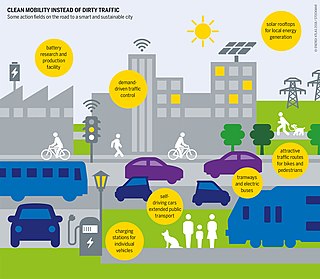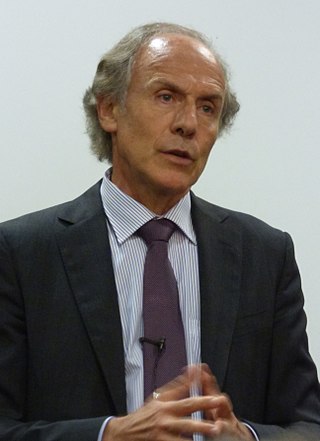Related Research Articles

The National Telecommunications and Information Administration (NTIA) is an agency of the United States Department of Commerce that serves as the President's principal adviser on telecommunications policies pertaining to the United States' economic and technological advancement and to regulation of the telecommunications industry.
The Cabinet of Australia, officially the Cabinet of the Commonwealth of Australia, also known as the Federal Cabinet, is the chief decision-making body of the executive branch of the federal government of Australia. The cabinet is appointed by the prime minister of Australia and is composed of senior government ministers who head the executive departments and ministries of the federal government, this often includes assistant ministers and a number of special envoys and other government advisors. The cabinet is seperate to the federal Department of the Prime Ministers and Cabinet.

NICTA was Australia's Information and Communications Technology (ICT) Research Centre of Excellence and is now known as CSIRO's Data61. The term "Centre of Excellence" is common marketing terminology used by some Australian government organisations for titles of science research groups. NICTA's role was to pursue potentially economically significant ICT related research for the Australian economy.
The e-Government Unit (eGU) was a unit of the Cabinet Office of the government of the United Kingdom responsible for helping various government departments use information technology to increase efficiency and improve electronic access to government services. It was therefore deeply involved in issues of e-Government.
Satyanarayan Gangaram Pitroda, also known as Sam Pitroda is an Indian inventor, telecommunication engineer and entrepreneur. He was born in Titlagarh in the eastern Indian state of Odisha to a Gujarati family. He was also an advisor to the PM during Dr. Manmohan Singh's tenure.
The Office of the Chief Scientist (OCS) is part of the Department of Industry, Science and Resources. Its primary responsibilities are to enable growth and productivity for globally competitive industries. To help realise this vision, the Department has four key objectives: supporting science and commercialisation, growing business investment and improving business capability, streamlining regulation and building a high performance organisation.
Research Quality Framework (RQF) was a component of Backing Australia's Ability, an initiative of the Australian Government to formulate a best practice framework for assessing research quality and the impact of research, and ensure that public funding was being invested in research which would deliver real benefits to the wider community. RQF was to bring public funding of research in line with government policy for funding to be determined by outcomes achieved.
The Systemic Infrastructure Initiative was announced by the Government of Australia in January 2001 as part of Backing Australia's Ability – An Innovation Action Plan for the Future.

A smart city is a technologically modern urban area that uses different types of electronic methods and sensors to collect specific data. Information gained from that data is used to manage assets, resources and services efficiently; in return, that data is used to improve operations across the city. This includes data collected from citizens, devices, buildings and assets that is processed and analyzed to monitor and manage traffic and transportation systems, power plants, utilities, water supply networks, waste, criminal investigations, information systems, schools, libraries, hospitals, and other community services. Smart cities are defined as smart both in the ways in which their governments harness technology as well as in how they monitor, analyze, plan, and govern the city. In smart cities, the sharing of data in not limited to the city itself but also includes businesses, citizens and other third parties that can benefit from various uses of that data. Sharing data from different systems and sectors creates opportunities for increased understanding and economic benefits.

Alan Simon Finkel is an Australian neuroscientist, inventor, researcher, entrepreneur, educator, policy advisor, and philanthropist. He was Australia’s Chief Scientist from 2016 to 2020. Prior to his appointment, his career included Chancellor of Monash University, President of the Australian Academy of Technology and Engineering (ATSE), and CEO and founder of Axon Instruments, and CTO for the electric car start-up Better Place Australia.

The Government Office for Science is a science advisory office in the UK Government. The office advises the Government on policy and decision-making based on science and long-term thinking. It has been led by Professor Dame Angela McLean, the Government Chief Scientific Adviser, since 23 February 2023.
All European countries show eGovernment initiatives, mainly related to the improvement of governance at the national level. Significant eGovernment activities also take place at the European Commission level as well. There is an extensive list of eGovernment Fact Sheets maintained by the European Commission.

The Egyptian Ministry of Communications and Information Technology (MCIT) is a government body headquartered in Smart Village Egypt, Giza Governorate, in the Cairo metropolitan area. Established in 1999, the Ministry is responsible for information and communications technology (ICT) issues in the Arab Republic of Egypt including the planning, implementation and operation of government ICT plans and strategies. It is led by the Minister of Communications and Information Technology, who is nominated by the Prime Minister and is a member of the cabinet. The current ICT Minister is Amr Talaat who assumed the position on 14 June 2018.
Malcolm John Bryce was an Australian politician, who served as a Labor Party member of the Legislative Assembly of Western Australia from 1971 to 1988, representing the seat of Ascot. He was deputy leader of the Labor Party from 1977 to 1980 and from 1981 to 1988, and served as deputy premier under Brian Burke.

The NITI Aayog serves as the apex public policy think tank of the Government of India, and the nodal agency tasked with catalyzing economic development, and fostering cooperative federalism through the involvement of State Governments of India in the economic policy-making process using a bottom-up approach. Its initiatives include "15-year road map", "7-year vision, strategy, and action plan", AMRUT, Digital India, Atal Innovation Mission, Medical Education Reform, agriculture reforms, Indices Measuring States’ Performance in Health, Education and Water Management, Sub-Group of Chief Ministers on Rationalization of Centrally Sponsored Schemes, Sub-Group of Chief Ministers on Swachh Bharat Abhiyan, Sub-Group of Chief Ministers on Skill Development, Task Forces on Agriculture and up of Poverty, and Transforming India Lecture Series.
This article examines trends and developments in science and technology in Malawi.
This article examines trends and developments in science and technology in Zimbabwe since 2009.
Science and technology in Tanzania describes developments and trends in higher education and science, technology and innovation policy and governance in the United Republic of Tanzania since the turn of the century.
References
- 1 2 Commonwealth of Australia (January 2001). Backing Australia's Ability: An Innovation Action Plan for the Future. ISBN 0-642-72133-5, ISR 2000/223. Archived from the original on 2 February 2007. Retrieved 6 February 2007.
- ↑ "Innovation Plan". ABC Radio National broadcast. 3 February 2001. Archived from the original on 11 March 2005. Retrieved 2 February 2007.
- ↑ "Transcript of the Prime Minister The Hon. John Howard MP, Federation address and launch of the 'Backing Australia's Ability', Australian Technology Park Centre, Sydney". 29 January 2001. Archived from the original on 10 February 2007. Retrieved 7 February 2007.
- ↑ "Public-Private Partnerships for Research and Innovation: An evaluation off the Australian Experience" (PDF). OECD . Archived (PDF) from the original on 24 December 2006. Retrieved 7 February 2007.
- ↑ "Science and Innovation Committee". Archived from the original on 2 February 2007. Retrieved 7 February 2007.
- ↑ "Backing Australia's Ability – An Innovation Action Plan for the Future 2001". Press Release, Australian Government. Archived from the original on 2 February 2007. Retrieved 2 February 2007.
- 1 2 "Backing Australia's Ability, Building our future through science and innovation". Press Release, Australian Government. 4 May 2004. Archived from the original on 3 October 2006. Retrieved 2 February 2007.
- ↑ "Science gets $5.3b new spending". The Age . 6 May 2004. Retrieved 2 February 2007.
- ↑ Jason Koutsoukis (7 May 2004). "Flak for PM's innovation policy". The Age . Retrieved 2 February 2007.